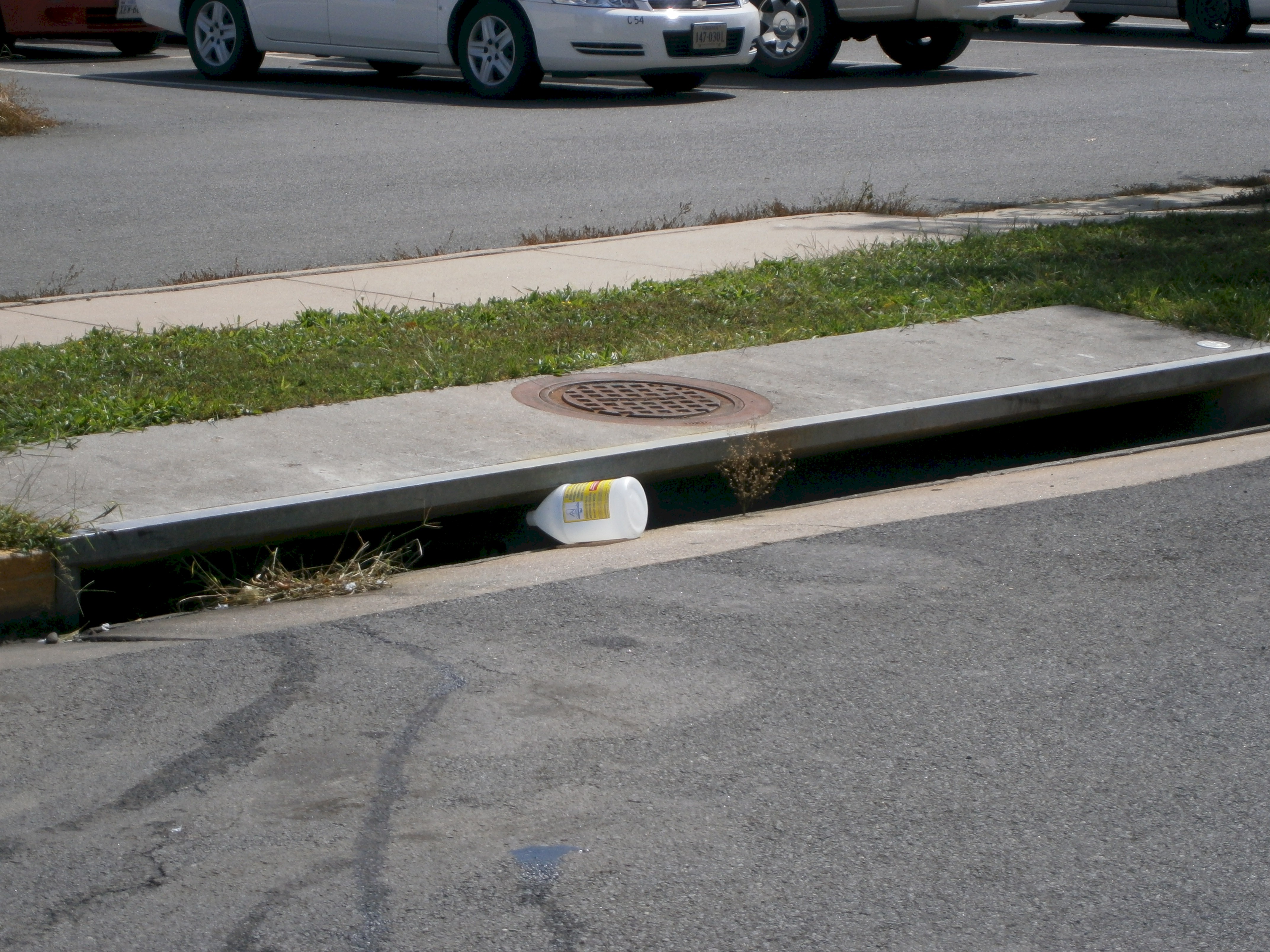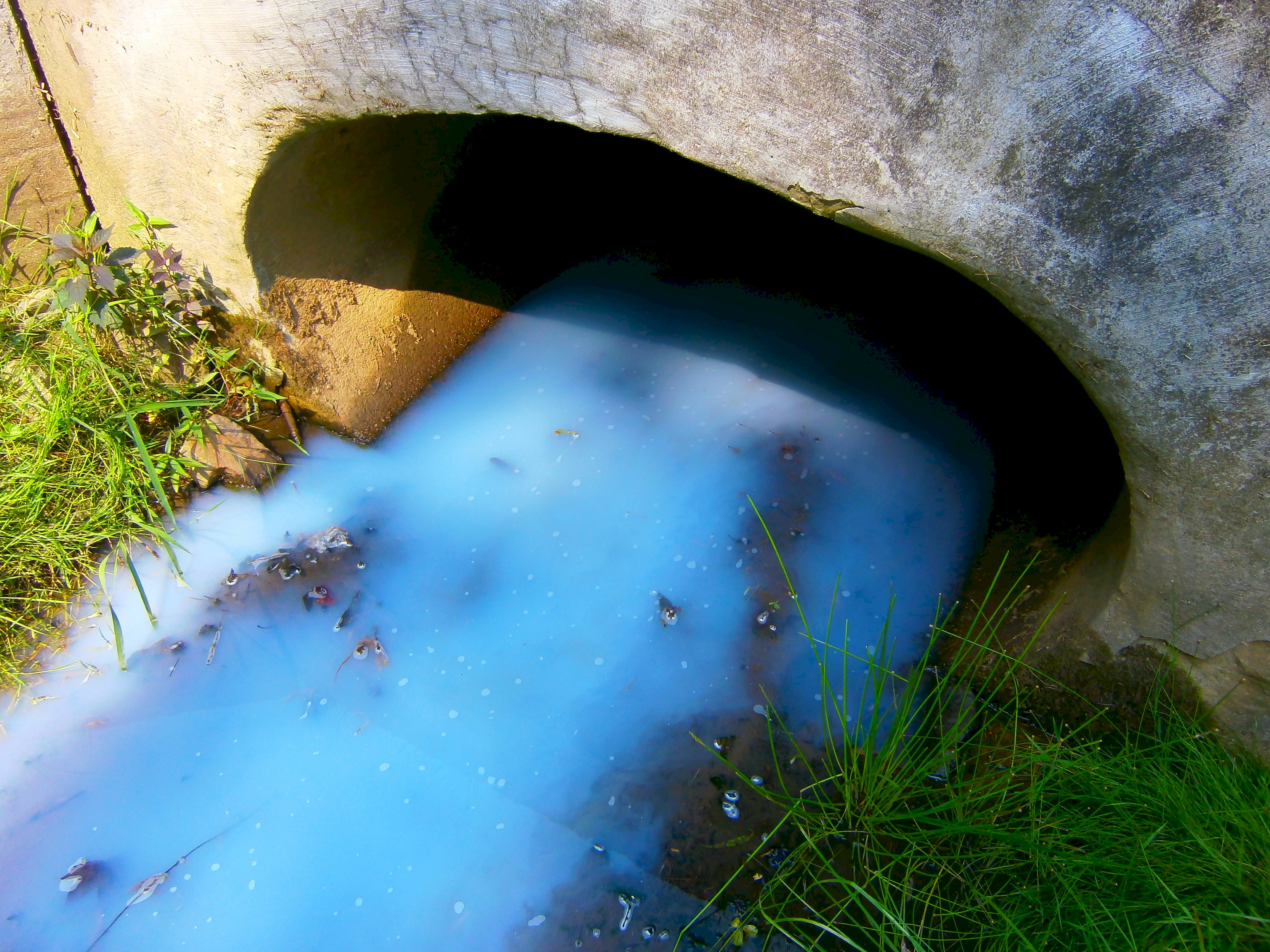Illicit Discharge
DON'T LET THE WRONG THINGS GO DOWN OUR STORM DRAINS
The public can report illicit discharge to our office by sending an email to us at [email protected].
What is an illicit discharge?
An illicit discharge is generally any material, liquid or oil that enters the storm drain system AND is not composed entirely of storm water. We all need to play a role in preventing the wrong fluids, materials and runoff from washing down the storm drain since it can pollute our streams and impact our drinking water.
Potential Sources of Illicit Discharges
- Used motor vehicle fluids
- Household Hazardous Waste (such as household cleaners, paints, and pesticides)
- Discharge from unpermitted industrial operations
- Animal waste
- Grass clippings and leaf litter
What is not considered an Illicit Discharge?
- Flushing water from the fire hydrants and firefighting operations
- Landscape irrigation and lawn watering
- Air conditioning condensation and crawl space pump water that runs off property
- Dechlorinated pool water (allow pool water to sit several days before draining your pool)
- Individual residential car washing
Illicit Discharge Detection and Elimination Program (IDDE)
Prince William staff has the legal responsibility to control discharges and impose fines against anyone who knowingly allows or causes pollutants to enter the storm drain system. There are a number of engineered components to an effective storm drain system. Learn more about the methods we use to control storm water runoff.
This authority is grated through a permit from the Virginia Department of Environmental Quality and the federal Environmental Protection Agency. Staff regularly inspect storm water outfalls to check for the presence of illicit substances from deliberate dumping, leaks from sanitary water systems or other sources. We also inspect facilities that could potentially discharge unwanted wastes into the storm drain such as automotive service facilities, landfills, municipal facilities and other operations.
How can you help?
As part of our efforts to protect waterways, Prince William County holds a storm water permit through the Virginia Department of Environmental Quality. This permit requires us to monitor, conduct inspections and eliminate potential pollutants. Eliminating pollution contained in storm water runoff is considered the most efficient and cost effective method of reducing pollution in natural water bodies.
There may be incidents where unwanted materials enter the storm drains, so we ask the public to help us keep an eye on these important entryways to our streams.

Public Works monitors, inspects and helps prevent materials and liquids (other than rain and storm water) from entering the storm drains.
Please advise Public Works if you see anyone flushing, dumping or pushing unwanted items such as used motor oil, hazardous waste, or grass clippings into storm drains.
To help you identify illicit discharge, please visit our page featuring photos and descriptions of illicit discharge and run off concerns.
What can you do to prevent pollution from storm water runoff?
There are several things you can do to help prevent storm water pollution. These are simple actions that you can incorporate around your home or business, which can greatly improve the quality of our local water bodies.
-
Never dump liquid waste products into the storm drain inlets
-
Take waste products such as cleaning supplies, paints and household chemicals to the household hazardous waste collection sponsored by the County
-
Properly dispose of trash and recycling
-
Store chemicals away from storm drains
-
Use good practices and habits when managing:
-
lawn and landscape maintenance
-
vehicle washing, maintenance and storage
-
pet waste
-
septic system maintenance
-

Learn more about illicit discharge and local efforts to reduce storm water runoff problems:
We follow the guidelines under Chapter 23.2 Storm Water Management in the Prince William County Ordinance
You can also find more information at the EPA web site: EPA Link